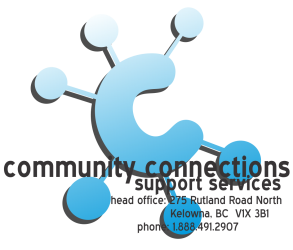
From CSSEA
This is an update to the CSSEA Info published on April 24, 2020 regarding the various federal programs to support employees and employers during the pandemic. This CSSEA Info focuses on three new programs to replace the Canada Emergency Response Benefit (CERB) and support employees facing employment challenges during the pandemic.
On October 2, 2020, the COVID-19 Response Measures Act (formerly Bill C-4) received Royal Assent. Part 1 of this Act is the Canada Recovery Benefits Act, and it creates three new temporary recovery benefits to support Canadians who are unable to work for reasons related to COVID-19. These benefits will be in place for one year beginning September 27, 2020 and expiring on September 25, 2021. As of October 5, 2020, employees will be able to apply for the following benefits through the Canada Revenue Agency (CRA). These benefits will be paid on a weekly basis, and employees will have to apply for each week they are eligible.
1. Canada Recovery Caregiving Benefit (CRCB) of $500 per week for up to 26 weeks per household for employees unable to work for at least 50% of the week because they must care for a child under the age of 12 or family member because schools, day-cares or care facilities are closed due to COVID-19, or because the child or family member is sick and/or required to quarantine or is at high risk of serious health implications because of COVID-19.
Key eligibility requirements include:
a. Child under 12 years old – The reduction in the scheduled work week is due to caring for a child under 12 years old because:
(A) the school or other facility that the child normally attended was, for reasons related to COVID-19, closed, or open only at certain times or open only for certain children,
(B) the child could not attend the school or other facility because
(I) the child contracted or might have contracted COVID-19,
(II) the child was in isolation on the advice of a medical practitioner, nurse practitioner, person in authority, government or public health authority for reasons related to COVID-19, or
(lll) the child would, in the opinion of a medical practitioner or nurse practitioner, be at risk of having serious health complications if the child contracted COVID-19, or
(C) the person who usually cared for the child was not available for reasons related to COVID-19.
Or
b. Family Member requiring supervised care – The reduction in the scheduled work week is due to caring for a family member requiring supervised care because:
(A) the day program or facility that the family member normally attended was, for reasons related to COVID-19, unavailable or closed, available or open only at certain times or available or open only for certain persons,
(B) the family member could not attend the day program or facility because
(I) the family member contracted or might have contracted COVID-19,
(II) the family member was in isolation on the advice of their employer, a medical practitioner, nurse practitioner, person in authority, government or public health authority for reasons related to COVID-19, or
(lll) the family member would, in the opinion of a medical practitioner or nurse practitioner, be at risk of having serious health complications if the family member contracted COVID-19, or
(C) the care services that are normally provided to the family member at their place of residence were not available for reasons related to COVID-19.
2. Canada Recovery Sickness Benefit (CRSB) of $500 per week for up to a maximum of two weeks, for workers who are unable to work for at least 50% of the week because they contracted COVID-19, self-isolated for reasons related to COVID-19, or have underlying conditions.
Specifically, key eligibility requirements include:
(i) they contracted or might have contracted COVID-19,
(ii) they have underlying conditions, are undergoing treatments or have contracted other sicknesses that, in the opinion of a medical practitioner, nurse practitioner, person in authority, government or public health authority, would make them more susceptible to COVID-19, or
(iii) they isolated themselves on the advice of their employer, a medical practitioner, nurse practitioner, person in authority, government or public health authority for reasons related to COVID-19;
For both the CRCB and CRSB, employees who receive other CRA benefits or paid leaves from an employer do not qualify for these benefits. In relation to points (i) and (ii) immediately above in relation to the CRSB, if an employee is symptomatic or otherwise has a medical basis for being disabled from work, employers are to continue to place employees on sick leave to the extent that credits are available, and the CRSB would not apply. In relation to point (iii) above, asymptomatic employees who are directed to self-isolate would be eligible for either the CRSB or paid leave from the employer, but the employer cannot “top up” the CRSB. Based on information so far received from the CRA, any employer top-up would render the absent employee ineligible for this benefit. CSSEA understands that the provincial government will not be continuing to fund employers’ extraordinary costs for these paid leaves. As a result, assuming that employees cannot be deployed to work from home, employers should support absent employees to apply for the CRCB or CRSB as applicable, after other paid leaves have been considered or exhausted (ie. Vacation, overtime banks, special leaves). Employees would then be placed on unpaid leave of absence status, but employers are recommended to continue to pay employees’ health and welfare benefits premiums until further notice as these leaves are COVID-19 related.
Employees will need to attest that they meet all criteria for payment of the benefits, and may be required to provide the government with additional information or proof.
As of October 12, 2020, employees will also be able to apply for:
3. Canada Recovery Benefit (CRB), which will provide eligible workers with $500 per week for up to 26 weeks for those who have stopped working and who are not eligible for EI, or had their employment income reduced by at least 50% due to COVID-19. This benefit will be paid in two-week periods. It most closely aligns with the previous CERB benefit that was available.
Eligible individuals will be able to apply for the various recovery benefits online through the CRA’s My Account portal or by phone at 1.833.966.2099 .
For more information, see:
for a full menu of supports available to both employees and employers, please also see:
https://www.canada.ca/en/department-finance/economic-response-plan.html


